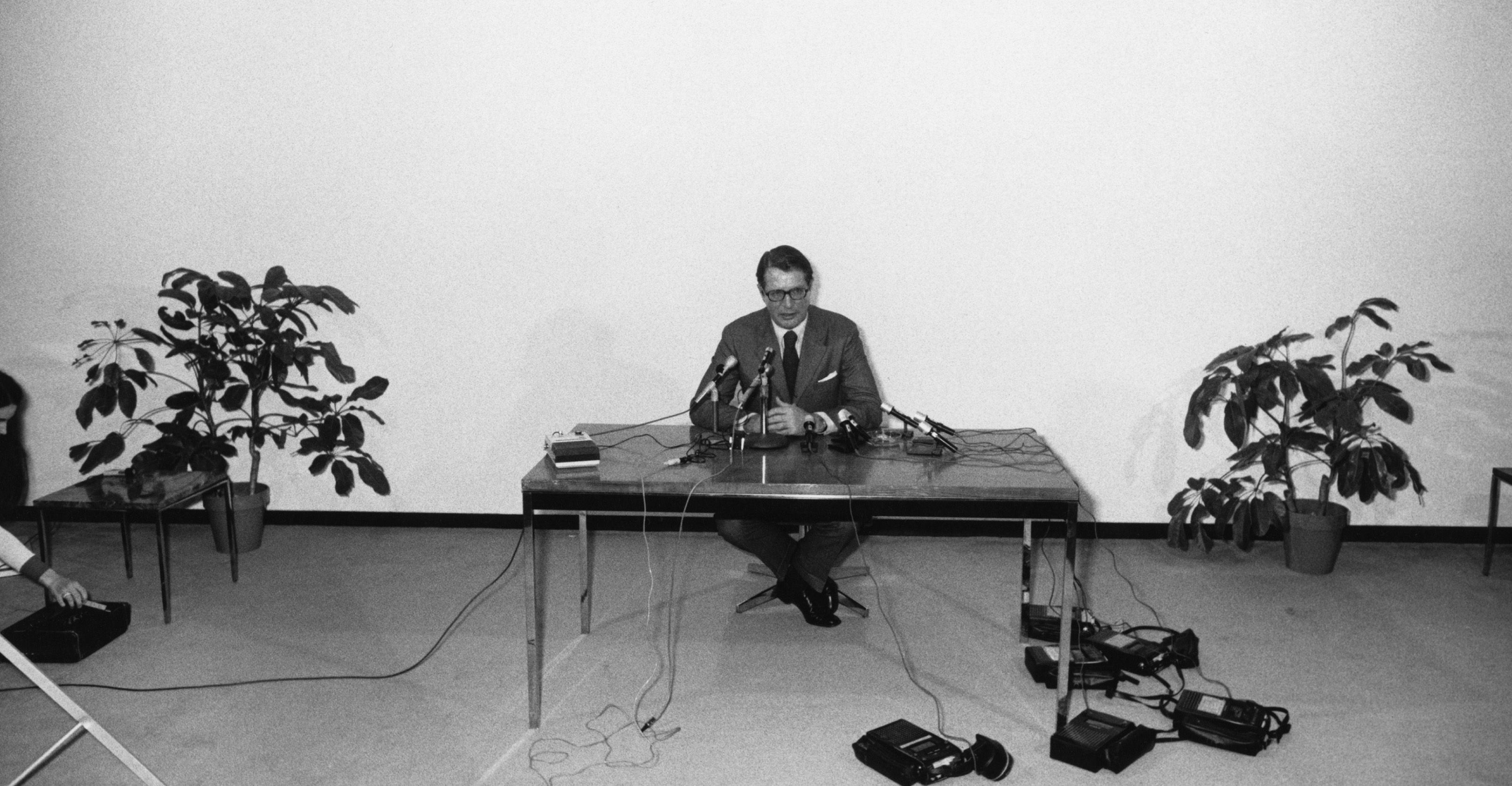Interpol finds itself at a standstill with full-length ‘Marauder’

Interpol
Marauder
Matador Records · August 24, 2018
Marauder is far from the most inventive or compelling Interpol album, but the consistent atmosphere created by Dave Fridmann’s production and upbeat style make way for various engaging and enjoyable moments.
I’ll be honest: I really wanted to like this album. I would consider myself an Interpol super-fan to a level that is almost embarrassing, so I tend to get my hopes up every time they announce a new release. Even after various disappointments in the form of, particularly, their self-titled and Our Love to Admire, I still retain some (maybe naive) optimism that maybe they’ll manage to make something that approaches their earliest albums.
I didn’t find that on Marauder. I intentionally avoided listening to any of the singles – ‘The Rover,’ ‘Number 10,’ or the album’s first song, ‘If You Really Love Nothing’ – because I was committed to having an open mind. Evidently, this didn’t save the album from itself. Marauder instantly feels like an Interpol album, mostly because it sounds exactly like every less-than-great release they’ve put out basically since 2004’s Antics. It features the same crisp production and repetitive bass-lines that have marked everything they’ve ever done – but that’s also exactly the problem. It feels as though Interpol and I are on the same page: we both want desperately to hear another record like their early (and most acclaimed) works, but 14 years after the release of Antics, it’s becoming more and more apparent that it’s just not going to happen.
That’s not to say that this is an album that I truly, genuinely dislike, despite my initial negative impressions. It would be pretty difficult for me to fully hate an Interpol album, and this one is a lot better than some of their other later releases. The album is carried by the fact that many of the songs, even outside of the singles, have rather single-like qualities: the anthemic choruses, catchy hooks, and the repetitive instrumentation (which admittedly is a hallmark of most of their songs in general, full-stop). On top of that, they’ve moved from a cleaner sound – one that is unmuddied by the distortion that seems to find its way onto every other album these days – to one that is absolutely drenched in reverb, particularly in terms of Kessler’s guitar work and Paul Banks’ vocals. I like the sound, but it doesn’t excite me very much. Daniel Kessler’s guitar work is distinctive, for sure, since I can’t really think of another band that sounds close to Interpol, and Paul Banks’ voice is unmistakable. But at this point, without any real changes to their formula in years, the combination is starting to get a bit tired (to say the least).
While “If You Really Love Nothing” and “The Rover” start out the album on a reasonable high note, they still leave something to be desired. There’s nothing to distinguish the album from any of Interpol’s other recent works, to the point where I kind of feel like I could be writing the same exact review for their last album, El Pintor. The only difference is that Marauder maintains a bit more energy than El Pintor, and the instrumentation is denser; less sparse. Paul Banks can be one of my favorite vocalists, but he doesn’t measure up here at all, and it’s even kind of difficult to understand what he’s saying – especially in “The Rover.” Part of this is definitely that there’s French words randomly interspersed into the song for seemingly no reason, but he isn’t showing off the range and emotion that he’s put into his earlier albums, falling back into the old criticisms of his singing as monotone. “If You Really Love Nothing” is a lot better in terms of vocals, and some – but not enough – emotion comes through, as Paul Banks is presumably referring to the departure from his long-time girlfriend, Helena Christensen, earlier this year. I love a good break-up song, but the droning vocals kind of take the fun out of it.
“Complications,” the album’s third song, is probably the biggest departure from their normal sound on Marauder, and it sounds more like The Libertines than a typical Interpol song. The momentum is overall decent on the first half of the record, and bringing on Dave Fridmann (most recently known for his work with Tame Impala and MGMT) for the album’s production was a strong move for the band – the album sounds great, even if Fridmann didn’t push them to do anything particularly new or interesting. The sound engineering creates a strong, consistent atmosphere, and the album has a great sense of cohesion. It knows what it’s doing, even if it’s not doing anything out of the ordinary.
I wouldn’t count any obscenely weak moments on the album, which is a plus. If anything, the albums bad moments are just where things get stale, but it’s not particularly bad. Interpol absolutely fall into the trap of having set absurdly high expectations at the beginning of their career, so it’s hard to say if certain things are actually bad, or if I just wish they were better. “Surveillance” is certainly one of the more tedious tracks, will a dull chord progression and boring performances all around. It doesn’t make me cringe, but it might make me press “skip.”
My main gripe with this album is that it’s just another indication that Interpol is perpetually uninterested in doing anything actually ambitious. It’s not terrible, it’s just not particularly good, either.